第171章 LETTER CXVI(1)
LONDON,June 11,O.S.1750
MY DEAR FRIEND:The President Montesquieu (whom you will be acquainted with at Paris),after having laid down in his book,'De l'Esprit des Lois',the nature and principles of the three different kinds of government,viz,the democratical,the monarchical,and the despotic,treats of the education necessary for each respective form.His chapter upon the education proper for the monarchical I thought worth transcribing and sending to you.You will observe that the monarchy which he has in his eye is France:--"In monarchies,the principal branch of education is not taught in colleges or academies.It commences,in some measure,at our setting out in the world;for this is the school of what we call honor,that universal preceptor,which ought everywhere to be our guide.
"Here it is that we constantly hear three rules or maxims,viz :That we should have a certain nobleness in our virtues,a kind of frankness in our morals,and a particular politeness in our behavior.
"The virtues we are here taught,are less what we owe to others,than to ourselves;they are not so much what draws us toward society,as what distinguishes us from our fellow-citizens.
"Here the actions of men are judged,not as virtuous,but as shining;not as just,but as great;not as reasonable,but as extraordinary.
"When honor here meets with anything noble in our actions,it is either a judge that approves them,or a sophister by whom they are excused.
"It allows of gallantry,when united with the idea of sensible affection,or with that of conquest;this is the reason why we never meet with so strict a purity of morals in monarchies as in republican governments.
"It allows of cunning and craft,when joined with the notion of greatness of soul or importance of affairs;as,for instance,in politics,with whose finenesses it is far from being offended.
"It does not forbid adulation,but when separate from the idea of a large fortune,and connected only with the sense of our mean condition.
"With regard to morals,I have observed,that the education of monarchies ought to admit of a certain frankness and open carriage.Truth,therefore,in conversation,is here a necessary point.But is it for the sake of truth.By no means.Truth is requisite only,because a person habituated to veracity has an air of boldness and freedom.And,indeed,a man of this stamp seems to lay a stress only on the things themselves,not on the manner in which they are received.
"Hence it is,that in proportion as this kind of frankness is commended,that of the common people is despised,which has nothing but truth and simplicity for its object.
"In fine,the education of monarchies requires a certain politeness of behavior.Man,a sociable animal,is formed to please in society;and a person that would break through the rules of decency,so as to shock those he conversed with,would lose the public esteem,and become incapable of doing any good.
"But politeness,generally speaking,does not derive its original from so pure a source.It arises from a desire of distinguishing ourselves.It is pride that renders us polite;we are flattered with being taken notice of for a behavior that shows we are not of a mean condition,and that we have not been bred up with those who in all ages are considered as the scum of the people.
"Politeness,in monarchies,is naturalized at court.One man excessively great renders everybody else little.Hence that regard which is paid to our fellow-subjects;hence that politeness,equally pleasing to those by whom,as to those toward whom,it is practiced;because it gives people to understand that a person actually belongs,or at least deserves to belong,to the court.
"A court air consists in quitting a real for a borrowed greatness.The latter pleases the courtier more than the former.It inspires him with a certain disdainful modesty,which shows itself externally,but whose pride insensibly diminishes in proportion to his distance from the source of this greatness.
"At court we find a delicacy of taste in everything;a delicacy arising from the constant use of the superfluities of life;from the variety,and especially the satiety of pleasures;from the multiplicity and even confusion of fancies,which,if they are not agreeable,are sure of being well received.
"These are the things which properly fall within the province of education,in order to form what we call a man of honor,a man possessed of all the qualities and virtues requisite in this kind of government.
"Here it is that honor interferes with everything,mixing even with people's manner of thinking,and directing their very principles.